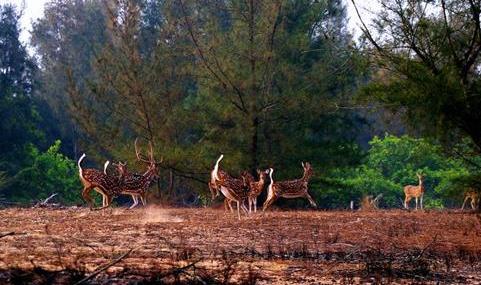New Delhi: During strict Covid lockdowns between January and May 2020, animals had travelled up to 73 per cent longer distances in 10 days and occurred on average 36 per cent closer to roads than the lockdown-free year before, researchers say.
The study findings suggested, they said, that most animals in these locations were exploring more of the landscape when vehicle movement was reduced.
The researchers also suggested that venturing closer to roads was because animals were less fearful of the road traffic or human presence in these regions.
They said their study showed how animals responded directly to human behavioural changes and that it provided valuable insight into future conservation strategies, because it meant that humans making behavioural adjustments could impact animals’ lives positively.
Exploiting the unique, natural opportunity afforded by lockdowns to study the effects of abrupt changes in human presence on wildlife, Marlee Tucker from Radboud University, Nijmegen, The Netherlands, and 174 colleagues collated movement data of 43 different land mammal species around the world, tracked using GPS devices.
They then compared the mammals’ movements during the first period of lockdowns with movements during the same months a year earlier.
Altogether, there were more than 2,300 individuals included in the study, from elephants and giraffes to bears and deer.
“There were many media reports that nature was recovering during those first lockdowns. For example, cougars were roaming the streets of Santiago, Chile, but we wanted to know: is there any evidence of this? Or were people simply paying more attention to everything while being at home?” said Tucker.
There were several explanations for the results, the researchers said. Fewer people outside during lockdowns gave animals the opportunity to explore new areas.
“In contrast, in areas with less strict lockdowns, we saw that animals travelled shorter distances. This may have to do with the fact that during those lockdowns, people were actually encouraged to go into nature.
“As a result, some nature areas were busier than before COVID-19,” said Thomas Mueller, Goethe University Frankfurt, Germany, who designed the study together with Tucker.
PTI






